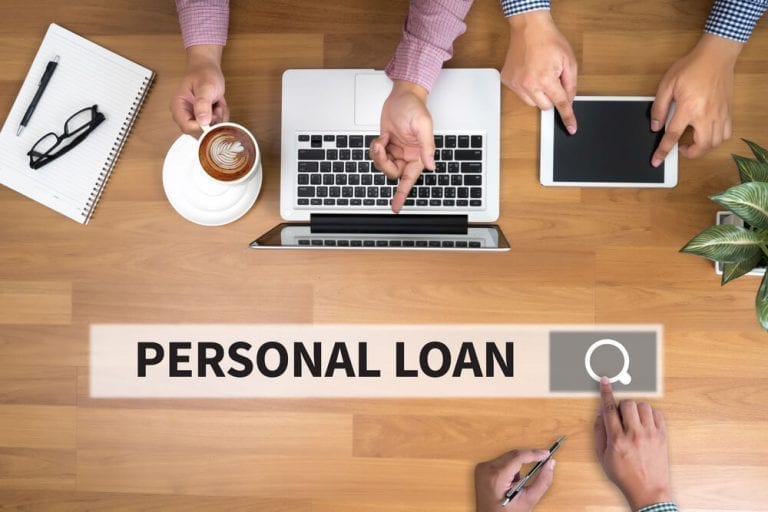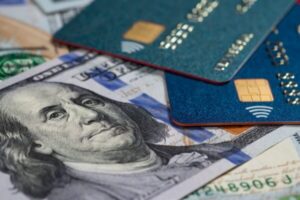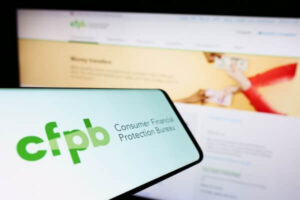The loan business is getting personal.
We’re talking personal loans, and they are exactly what they sound like. You borrow money from a lending institution and pay it back.
The big difference from mortgages or car loans is that you don’t need collateral to get a personal loan.
A lot of consumers must like that because the personal loan business is booming. But is one right for you?
Yes!
No!
It all depends on your particular financial situation, but personal loans are definitely worth considering if you’re in a financial jam.
Here’s a look at the variables that will help you make the right decision.
What exactly is a personal loan?
It’s probably the oldest form of borrowing known to man. For centuries people traded cattle, food, jewels and other commodities. Then about 700 BC, somebody in the Aegean Sea area got the bright idea to make coins. They were much easier to carry around than bushels of wheat or a cow and you could even loan your neighbor a few of them and expect to get repaid.
An industry was born.
Americans have been borrowing money from each other since the Pilgrims arrived. The transactions eventually became an actual business, with banks loaning the money.
In the famed movie “It’s a Wonderful Life” George Bailey gave up his dreams of traveling the world to run Bailey Building and Loan. He became a hero by making a lot of personal loans to the good people of Bedford Falls.
Basically, you enter into an agreement to borrow money and pay it back in fixed monthly payments – with interest.
The loan is “unsecured,” meaning you don’t have to pledge assets to get one. Lenders don’t have the right to claim your car or house if you default.
The amount of money you can borrow largely depends on your ability to pay it back. You’re not likely to get a $100,000 personal loan with no collateral unless you have a great credit score and healthy income.
But the average personal loan in the first quarter of 2018 was $7,986. The default rate was a relatively low 3.5%, so lending institutions aren’t letting consumers borrow more than they can pay back.
Personal loans can be used for anything. They typically go for home improvement projects, medical procedures, financing a business purchase or a large expense like a wedding or home appliance, and consolidating debt.
Why are personal loans so popular?
They are the fastest-growing form of consumer debt, according to a 2018 study by the online lender LendingPoint. Mortgages, auto loans and student loans comprise the majority of consumer debt, but personal loans are trending up faster, especially among Millennials.
LendingPoint said between 2015 and 2018 personal loans doubled among consumers ages 18 to 35. LendingClub, another online lender, reported that personal loan originations soared to $2.1 billion in the first quarter of 2018. That was a 20% jump over the same period in 2017.
The boom is fueled by the Great Recession. It’s over, but the lean times taught people the value of not overextending themselves financially.
A prime way to do that is to avoid credit cards like they have Ebola. Millennials, that group that saw parents struggle when the economy crashed, are especially credit card averse.
A Bankrate.com survey in 2018 showed only 33% of people ages 18 to 30 have a credit card. That compares to 55% for the 31-50 age group and 62% for people 51 to 64.
The recession also curtailed lending by traditional outlets like banks and credit unions which were hammered by defaulting loans. Financial technology companies like LendingClub, Prosper and Avant filled the void.
Online lenders had 1% of the personal loan market in 2010. Now it’s more than 30%, and traditional lenders are getting back into the game.
“As a result of movements in technology, the opportunity in the consumer space has moved to us,” Goldman Sachs CEO Lloyd Blankfein told the Economic Club of New York.
Translation: There are a lot of places out there eager to make personal loans.
When would a personal loan be advisable?
If you have a jumble of bills each month and want to consolidate them into one payment, a personal loan is a good plan of attack.
It’s like a do-it-yourself debt consolidation program. You take out one large loan and pay off your credit cards and perhaps other debts like automobile or student loans. Then you have just one payment a month – the personal loan.
The key is what interest rate you can secure on a personal loan. They range from 5% to 36% with your credit score playing a huge role in where your rate ends up.
If you can avoid the steep end, your interest rate will probably be lower than the interest rate on credit cards, which had a national average of 19.05% in the first quarter of 2018.
Add what you were paying separately for all those bills to see if it would be more than you’d pay for a personal loan. If the loan is less, it’s time to seriously consider getting one.
The same principle applies for one-time expenses like medical emergencies, weddings, vacations and home improvements. If it’s cheaper than putting them on credit cards, do it.
When would getting a personal loan be a bad move?
Basically, any time you could find a cheaper alternative.
A big attraction of a personal loan is that it doesn’t require collateral. The downside is that means interest rates are higher than secured loans.
If you’re in a position to take out a home equity loan or home equity line of credit (HELOC), chances are it would be cheaper than a personal loan.
Home equity loans were around 5.85% in October of 2018. HELOC rates were 6.20%. But you have to factor in closing costs and the possibility your HELOC interest rate probably is tied to market fluctuations and could rise quickly.
Refinancing through a debt management program can also be a cheaper option and it doesn’t involve a loan. You hire a nonprofit company to consolidate your bills and negotiate lower interest rates and monthly payments. Then you make one monthly payment, and counselors work with you to establish an affordable budget and sound financial habits.
What affect does a personal loan have on you credit score?
It all depends on whether you pay it back on time. If you do, a personal loan can be a nice boost to your credit score. Credit bureaus love timely payments.
The amount you owe on credit cards is one of the factors that determines your credit score. Ideally, you shouldn’t use more than 30% of your credit limit.
If you’re over that, paying off your credit cards with a personal loan is a sound move. Your score will also improve if your personal loan pays off other debts.
So, should you get a personal loan?
That depends on what you’ve learned in the past five minutes reading this. If your financial situation seems to fit a personal loan, the first thing to do is shop around for a lender.
With online banking it’s easier than ever to compare interest rates, fees and other services. It has certainly gotten easier than when people traded cattle as the loan.
But once you get a personal loan it’s vital to remember one thing. You’re not escaping that debt. You’re just moving that debt to a new lender.
Medical emergencies, weddings, vacations and broken furnaces happen. But if you’re not careful with your restructured finances, you might end up in worse shape that you started.
Sources:
- NA/ (2018, July 3). Personal Loans Have Surged to a Record $102 Billion High. Retrieved from: http://fortune.com/2018/07/03/us-personal-loan-debt-2018/
- Detrixhe, J. (2018, July 24). American are splurging on personal loans thanks to fintech startups. Retrieved from: https://qz.com/1334899/personal-loans-are-surging-in-the-us-fueled-by-fintech-startups/
- (2018, February 27). Why Millennials are Ditching Credit Cards http://fortune.com/2018/02/27/why-millennials-are-ditching-credit-cards/


















